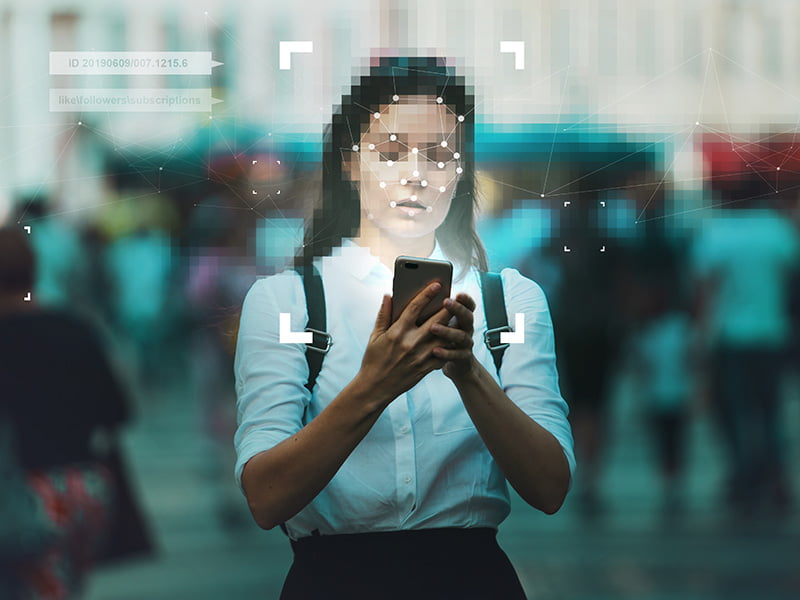Strict safeguards are needed around the South Australian government use of new technology for home quarantine, digital rights advocates say, with individuals to use facial recognition software and geolocation tracking as part of the trial.
South Australia launched a trial of home-based quarantine for people returning from NSW or Victoria this week. The pilot will involve participants using the new Home Quarantine SA app being contacted at random and required to provide proof of their location within 15 minutes.

This will be done through geo-location and facial recognition software. If the individual does not do this, they will be visited by SA police.
“Using innovative technology, the app provides geo-location and live face-recognition to ensure that people are compliant with their home quarantine direction, and ensures they are at their approved home quarantine address,” South Australian Premier Steven Marshall said.
“As we have more people in quarantine, it’s going to be very, very resource-intensive to have the policy [of] going around and checking, so instead we’re going to be using technology to trial. I feel very proud that in South Australia, we’re really using technology to do what we can to manage this coronavirus.”
Up to 50 SA residents will be participating in the trial and will complete 14 days of quarantine at their home using the app, which also includes a testing schedule, symptoms test and health and wellbeing resources.
Digital Rights Watch’s Samantha Floreani said there needs to be stringent safeguards in place around the use of the technology, in line with what the federal government introduced for the COVIDSafe contact tracing app.
“Location and biometric data is extremely valuable. Any government initiative that wishes to collect these types of personal information should have robust safeguards in place before it is rolled out, to ensure that information is not later used or disclosed for other purposes,” Ms Floreani told InnovationAus.
“While the COVIDSafe app was a flop, the legislation that came with it established a baseline for the kind of protections that we should expect from a technological response to COVID-19. If this home quarantine app is rolled out on a national scale, we need strict safeguards to protect the privacy and security of the information.”
It’s also questionable whether the app will be effective and is safe from misuse, Ms Floreani said.
“We are already seeing discussions on how functional this kind of app would be in practice, and the possible flaws or workarounds that might render it ineffective. We do not want to see a situation where this app ends up being the terrible combination of both privacy-invasive and ineffective at solving the problem at hand,” she said.
“I think it is entirely reasonable to be concerned that an app using facial recognition software, which is highly invasive and often inaccurate, is being trialled in an Australian state that currently does not have any specific state legislation protecting privacy.”
The South Australian government has released a privacy statement for the home quarantine app, which states that information collected through the service will be “encrypted immediately upon submission”, and then transferred to a secure server within Australia and under control of the state government.
“This information is used solely by the government of South Australia for compliance with directions under the Emergency Act 2004 as amended from time to time and / or contact tracing activities,” it said.
“This information will be destroyed at the conclusion of COVID-19 pandemic unless required for enforcement purposes for any alleged breach of a direction by you under the Emergency Management Act 2004. If used for these purposes the information will only be retained as long as necessary.”
The app will collect personal information, geo-location data and use the device’s camera for facial recognition purposes, and will also require access to device information to ensure that it is “not jailbroken or a user has obtained privileged control of the device”.
It will be operated in compliance with the Information Privacy Principles, the government said.
“We will take reasonable security measures to protect personal information from loss, unauthorised access, use, modification, disclosure or other misuse. We will ensure personal information is stored securely, not kept longer than necessary, and disposed of appropriately,” the privacy statement said.
“Strong data encryption mechanisms are also used to protect your personal information during data transmission and when your data is stored.”
Mr Marshall also sought to reassure individuals about the security of the home quarantine technology.
“Like COVID SAfe Check In, the new Home Quarantine SA app has stringent security features that ensures participant information is kept secure throughout the duration of quarantine,” he said.
“This innovative technology is the most advanced of its kind in Australia and if the trial proves successful, could provide more options for home quarantine for returned South Australians.”
The post Concerns over SA’s quarantine tech trial appeared first on InnovationAus.
This post was originally published on InnovationAus.